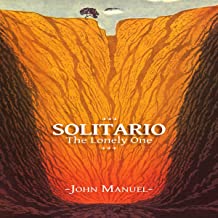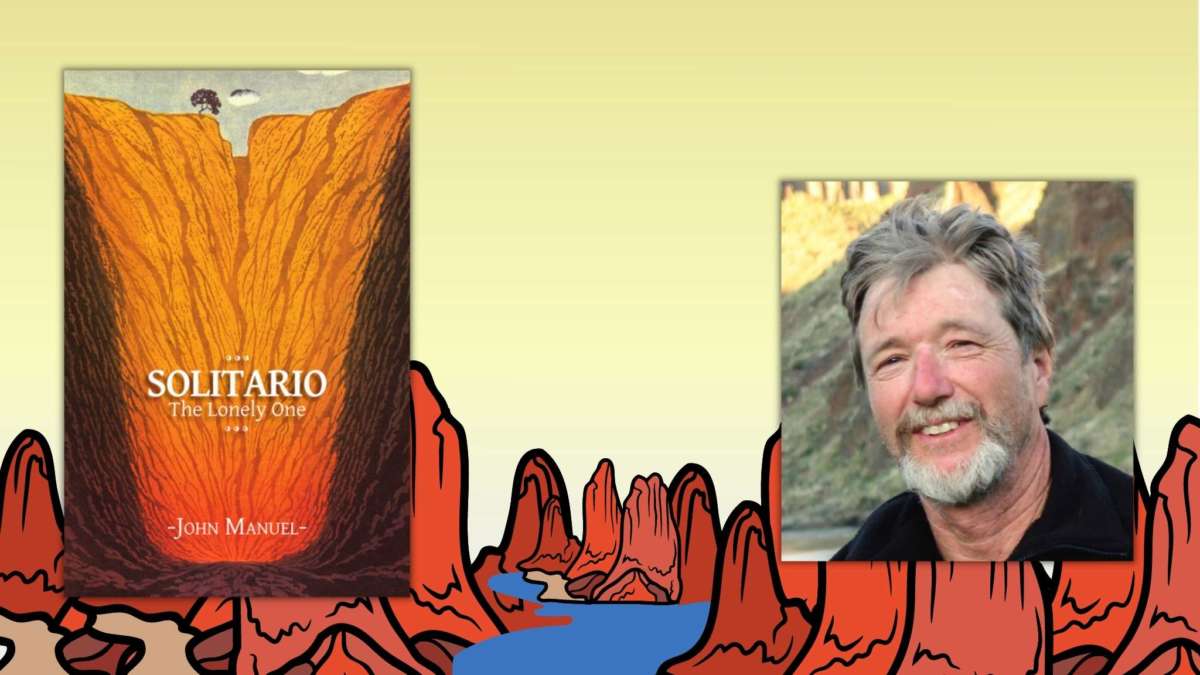Solitario: The Lonely One by John Manuel
“I made a living writing articles that required a high degree of accuracy,” says John Manuel, author of Solitario: The Lonely One. However, “I’ve always believed in the maxim ‘never let the facts get in the way of a good story.’” Manuel has certainly stayed true to his word in this latest entry in his three-novel series, which shows readers that there is always wonder to be found in life, and that one just needs to push themselves to find it.
The book is a continuation of the author’s earlier book, The Lower Canyons, which introduces readers to Robbie and his dream to lead clients down the Rio Grande on canoe expeditions. In the book, a changing climate brings heavy rains to West Texas and gives Robbie the opportunity to take his clients down a never-before-run desert arroyo. The landscape they enter, the people they encounter, and the relics they find, give these modern-day explorers the thrill of a lifetime.
Check out our interview with John Manuel below for some insight into the writing of the book and the author himself.
Q: In Solitario, you pose the question, “Are we right to be bold with our lives and the lives of others when the potential rewards are great?” What do you mean by this, and how does the book address this question?
A: In life, we often make calculated risks in order to do something that is potentially highly rewarding. This might involve climbing a mountain, rafting a river, or taking a long bike trip. I believe if you have considerable experience in a certain field and you judge the people you invite to have sufficient experience, it is worth taking that risk for what may be a positive, life-changing experience. This is the choice Robbie Ducharme makes in taking his clients down a never-before-run desert creek. Of course, nothing is guaranteed, and his group ends up running into some unforeseen, though fortunately not life-threatening obstacles.
Q: What prompted an environmental journalist, a very different type of writing from that of fiction, to write three novels?
A: I made a living writing articles that required a high degree of accuracy, but I’ve always believed in the maxim “never let the facts get in the way of a good story.” My friends have always known me to be a good story-teller and never seemed to mind that I stretched the truth, so once I retired, I transitioned to fiction writing. Fiction allows you to make up your own facts, which gives me a tremendous sense of freedom. Novel-length fiction requires you to stretch your imagination — creating multiple characters and scenarios — which I found I really enjoy.
Q: How have your experiences (growing up in Ohio, traveling to different locales as a journalist, becoming a husband and father) informed Solitario?
A: My experience as a canoeist started as a child on a muddy river in northern Ohio and extended through adulthood to rivers all across the country. Those trips, and the people I met on them, gave me tremendous fodder for Solitario. My journalism experience taught me to pay particular attention to the landscape, the flora and fauna, that I encountered on these trips. Even in writing fiction, you need to get that stuff right or someone will call you on it. As a husband and father, I’ve become aware of the tensions that can arise in a relationship in a new and threatening environment. At the same time, I appreciate the bonding that can happen when you undertake challenging experiences with a loved one.
Q: Is there any real life inspiration behind Robbie Ducharme? Do you see any of yourself in him?
A: My wife and I have taken more than a dozen week-long canoe trips with a particular guide out of North Carolina. His skills, his optimism, and his encouragement for us to push our limits as canoeists were the inspiration behind the character of Robbie Ducharme. At the same time, Ducharme is more impulsive, more emotional than my guide friend. In that respect, Ducharme is more like me.
Q: What do you wish for readers to take away from the book?
A: I want readers to believe there are always places of wonder, feelings of wonder, that can be experienced in life, but you need to push yourself to find them.
Q: What’s your next project?
A: My next novel is about a quirky Englishman who takes a group of American boys on an extended safari through Zimbabwe (then Rhodesia) right at the time rebel forces were making incursions from Zambia seeking to overthrow white rule. The boys think they are on a joy ride to photograph elephants and lions, but end up encountering much, much more.
About John Manuel:
John Manuel is a writer whose published works span the genres from environmental journalism, to creative non-fiction, to fiction. He has published three novels, a memoir, and a guidebook. His articles have appeared in institutional magazines such as The National Institute of Environmental Health Science’s Environmental Health Perspectives, trade journals such as Canoe and Kayak, and popular magazines such as Audubon and Orion. John is also a professional photographer. His photos have accompanied his articles in Audubon, Duke Magazine, Canoe and Kayak, and Wildlife in North Carolina. Finally, John is a teacher. He has designed and taught courses at the Duke University Young Writer’s Camp and the Duke Center for Documentary Studies.





